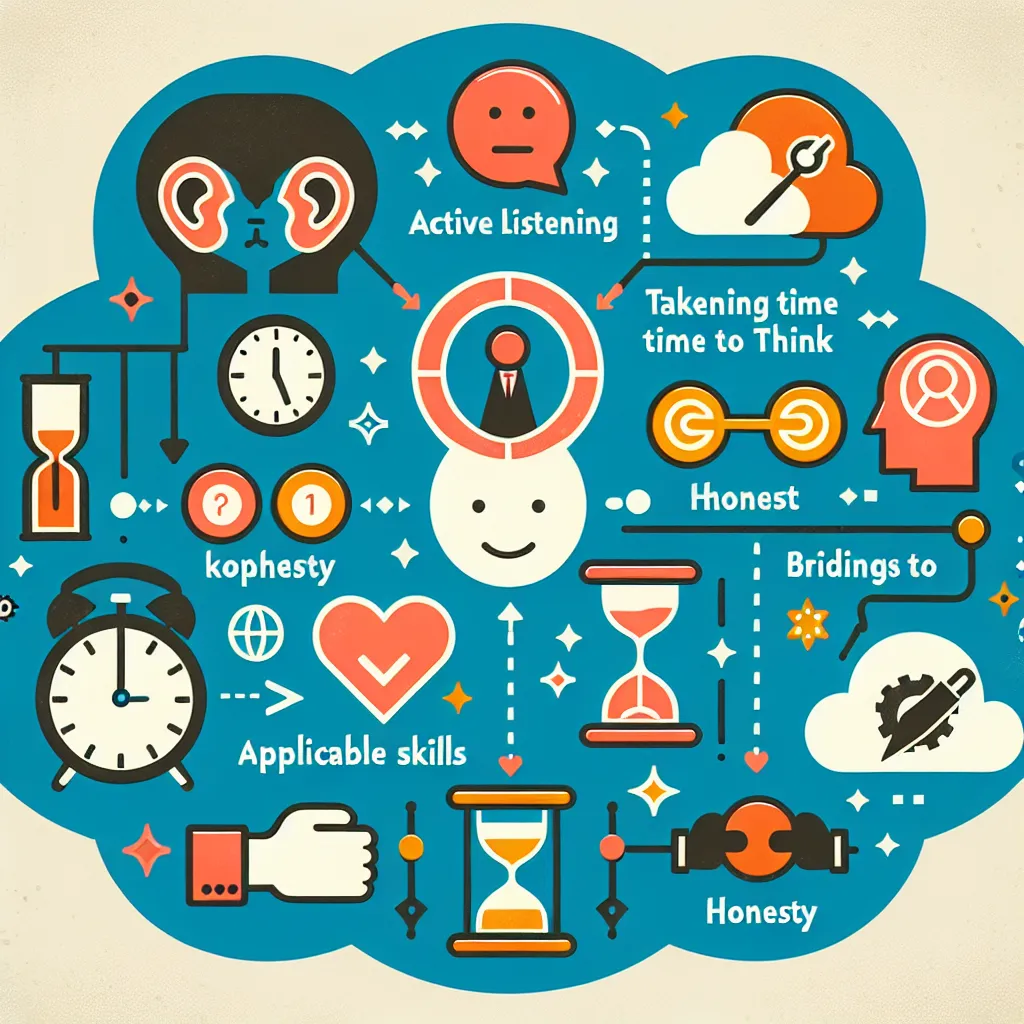Interviews can be nerve-wracking, especially when faced with challenging questions. This guide will help you navigate through tough interview scenarios and provide you with effective strategies to handle difficult questions with confidence.
Understanding the Importance of Preparation
Before diving into specific techniques, it’s crucial to understand why preparing for difficult questions is essential. Interviewers often use challenging questions to assess your problem-solving skills, ability to think on your feet, and how you handle pressure. By being well-prepared, you demonstrate your professionalism and commitment to the role.
 Interview Preparation
Interview Preparation
Common Types of Difficult Interview Questions
1. Behavioral Questions
Behavioral questions are designed to understand how you’ve handled situations in the past. Examples include:
- “Tell me about a time when you faced a conflict at work. How did you handle it?”
- “Describe a situation where you had to meet a tight deadline. What was your approach?”
To answer these effectively, use the STAR method:
- Situation: Set the context
- Task: Explain your responsibility
- Action: Describe the steps you took
- Result: Share the outcome
2. Hypothetical Questions
These questions assess your problem-solving skills in potential future scenarios. For instance:
- “How would you handle a dissatisfied client?”
- “What would you do if you disagreed with a superior’s decision?”
When answering, focus on your thought process and highlight your decision-making skills.
3. Personal Questions
Some questions might feel invasive or irrelevant. Examples include:
- “Why do you want to leave your current job?”
- “What are your biggest weaknesses?”
For these, remain professional and focus on how your experiences and traits align with the job requirements.
Strategies for Handling Difficult Questions
1. Active Listening
Pay close attention to the question asked. If needed, ask for clarification to ensure you understand what the interviewer is looking for.
2. Take Your Time
It’s okay to pause briefly to gather your thoughts. A well-considered answer is better than a rushed one.
3. Stay Positive
Even when discussing challenges or weaknesses, maintain a positive tone and focus on growth and learning.
4. Be Honest
Authenticity is key. If you don’t know something, admit it, but express your willingness to learn.
5. Bridge to Relevant Skills
When faced with a question you’re unsure about, try to steer the conversation towards your relevant skills or experiences.
 Interview Strategies
Interview Strategies
Handling Specific Difficult Questions
“What is your greatest weakness?”
Approach: Choose a genuine weakness, but focus on how you’re working to improve it.
Example Answer: “I sometimes struggle with public speaking. However, I’ve joined a local Toastmasters club to improve my skills and have already seen significant progress in my confidence and delivery.”
“Why should we hire you over other candidates?”
Approach: Highlight your unique skills and experiences that align with the job requirements.
Example Answer: “My combination of five years in project management and a recent certification in agile methodologies makes me uniquely qualified for this role. I’ve successfully led teams to complete projects 15% faster than the industry average, which I believe can bring significant value to your organization.”
“Where do you see yourself in five years?”
Approach: Show ambition while aligning with the company’s goals.
Example Answer: “In five years, I hope to have grown into a leadership role where I can mentor junior team members. I’m excited about the potential for professional development within your company and look forward to contributing to its long-term success.”
Common Mistakes to Avoid
- Rambling: Keep your answers concise and to the point.
- Being unprepared: Research the company and role thoroughly before the interview.
- Negativity: Avoid speaking negatively about past employers or experiences.
- Lying: Dishonesty can be easily detected and will harm your chances.
- Overlooking body language: Maintain good posture and eye contact.
Follow-up Questions and Suggested Responses
-
Q: “Can you elaborate on how you handled a major failure in your career?”
A: “Certainly. In my previous role, we launched a product that didn’t meet market expectations. I took responsibility for the miscalculation in market research. We quickly pivoted, gathered more detailed customer feedback, and relaunched with significant improvements. This experience taught me the importance of thorough market analysis and the value of adaptability.” -
Q: “How do you handle stress and pressure?”
A: “I thrive under pressure by maintaining a structured approach. I prioritize tasks, break large projects into manageable steps, and ensure I take short breaks to maintain focus. For example, during a high-stakes project last year, I implemented a daily 15-minute team check-in, which significantly reduced stress levels and improved our overall performance.” -
Q: “Tell me about a time when you had to adapt to a difficult situation.”
A: “When our company suddenly shifted to remote work due to the pandemic, I quickly adapted by setting up a home office and learning new collaboration tools. I also initiated virtual coffee breaks to maintain team morale. This adaptability led to our team maintaining productivity levels and even improving communication efficiency.” -
Q: “How do you deal with disagreements in a team setting?”
A: “I believe in addressing disagreements openly and professionally. In a recent project, there was a dispute over resource allocation. I organized a meeting where each team member could express their concerns. We then collaboratively developed a solution that addressed everyone’s needs. This approach not only resolved the issue but strengthened our team dynamics.” -
Q: “What’s the most difficult decision you’ve had to make in your career?”
A: “The most challenging decision was recommending the discontinuation of a long-standing product line. It was underperforming, but many were emotionally attached to it. I presented a comprehensive analysis showing how reallocating resources could benefit the company. While it was a tough decision, it ultimately led to increased profitability and opened up opportunities for innovative new products.”
Conclusion
Handling difficult interview questions is an art that combines preparation, quick thinking, and effective communication. By understanding the types of questions you might face and employing these strategies, you can turn challenging moments into opportunities to showcase your skills and suitability for the role. Remember, practice makes perfect. Consider conducting mock interviews with friends or mentors to refine your responses and boost your confidence.
For more insights on acing your interviews, check out our guide on behavioral interview questions and answers in English. Good luck with your upcoming interviews!




